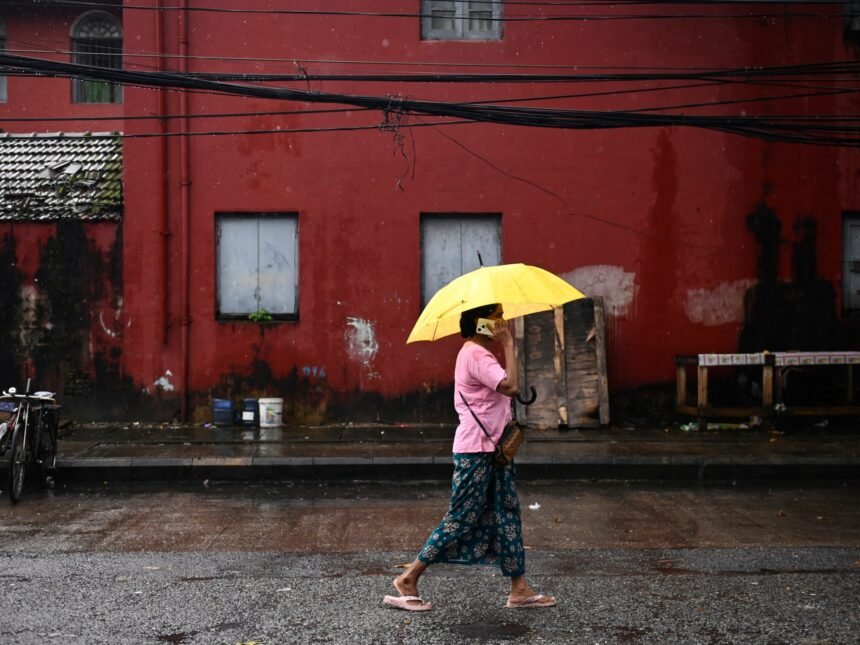Improvement financing to Southeast Asia is predicted to fall by greater than $2bn in 2026 as a result of latest cutbacks by Western governments, in line with a serious Australian suppose tank.
The Sydney-based Lowy Institute predicted in a brand new report on Sunday that growth help to Southeast Asia will drop to $26.5bn subsequent yr from $29bn in 2023.
The figures are billions of {dollars} beneath the pre-pandemic common of $33bn.
Bilateral funding can also be anticipated to fall by 20 % from about $11bn in 2023 to $9bn in 2026, the report stated.
The cuts will hit poorer nations within the areas hardest, and “social sector priorities equivalent to well being, training, and civil society help that depend on bilateral assist funding are more likely to lose out probably the most”, the report stated.
Fewer options
Cuts by Europe and the UK have been made to redirect funds as NATO members plan to lift defence spending to five % of gross home product (GDP) within the shadow of Russia’s struggle on Ukraine.
The European Union and 7 European governments will reduce overseas assist by $17.2bn between 2025 and 2029, whereas this yr, the UK introduced it’s going to reduce overseas assist spending by $7.6bn yearly, the report stated.
The best upset has come from the USA, the place earlier this yr, President Donald Trump shut down the US Company for Worldwide Improvement (USAID) and slashed practically $60bn in overseas help. Extra just lately, the US Senate took steps to claw again one other $8bn in spending.
The Lowy Institute stated governments nearer to residence, like China, will play an more and more vital function within the growth panorama.
“The centre of gravity in Southeast Asia’s growth finance panorama seems to be set to float East, notably to Beijing but in addition Tokyo and Seoul,” the report stated. “Mixed with doubtlessly weakening commerce ties with the USA, Southeast Asian nations threat discovering themselves with fewer options to help their growth.”
After experiencing a pointy decline throughout the COVID-19 pandemic, Chinese language abroad growth help has began to bounce again, reaching $4.9bn in 2023, in line with the report.
Its spending, nevertheless, focuses extra on infrastructure tasks, like railways and ports, somewhat than social sector points, the report stated. Beijing’s choice for non-concessional loans given at business charges advantages Southeast Asia’s middle- and high-income nations, however is much less useful for its poorest, like Cambodia, Myanmar, Laos and East Timor.
As China and establishments just like the World Financial institution and the Asian Improvement Financial institution play a extra distinguished function in Southeast Asia, much less clear is how Japan and South Korea can fill within the blanks, in line with specialists.
Japan, South Korea
Grace Stanhope, a Lowy Institute analysis affiliate and one of many report’s authors, informed Al Jazeera that each nations have expanded their growth help to incorporate civil society tasks.
“[While] Japanese and Korean growth help is usually much less overtly ‘values-based’ than conventional Western assist, we’ve been seeing Japan particularly transfer into the governance and civil society sectors, with tasks in 2023 which might be explicitly targeted on democracy and safety of weak migrants, for instance,” she stated.
“The identical is true of [South] Korea, which has just lately supported tasks for enhancing the transparency of Vietnamese courts and safety of girls from gender-based violence, so the strategy of the Japanese and Korean growth programmes is evolving past simply infrastructure.”
Tokyo and Seoul, nevertheless, are going through comparable pressures as Europe from the Trump administration to extend their defence budgets, slicing into their growth help.
Shiga Hiroaki, a professor on the Graduate Faculty of Worldwide Social Sciences at Yokohama Nationwide College, stated he was extra “pessimistic” that Japan might step in to fill the gaps left by the West.
He stated cuts might even be made as Tokyo ramps up defence spending to a historic excessive, and a “Japanese-first” right-wing social gathering pressures the federal government to redirect funds again residence.
“Contemplating Japan’s big fiscal deficit and public opposition to tax will increase, it’s extremely seemingly that the help price range might be sacrificed to fund defence spending,” he stated.
